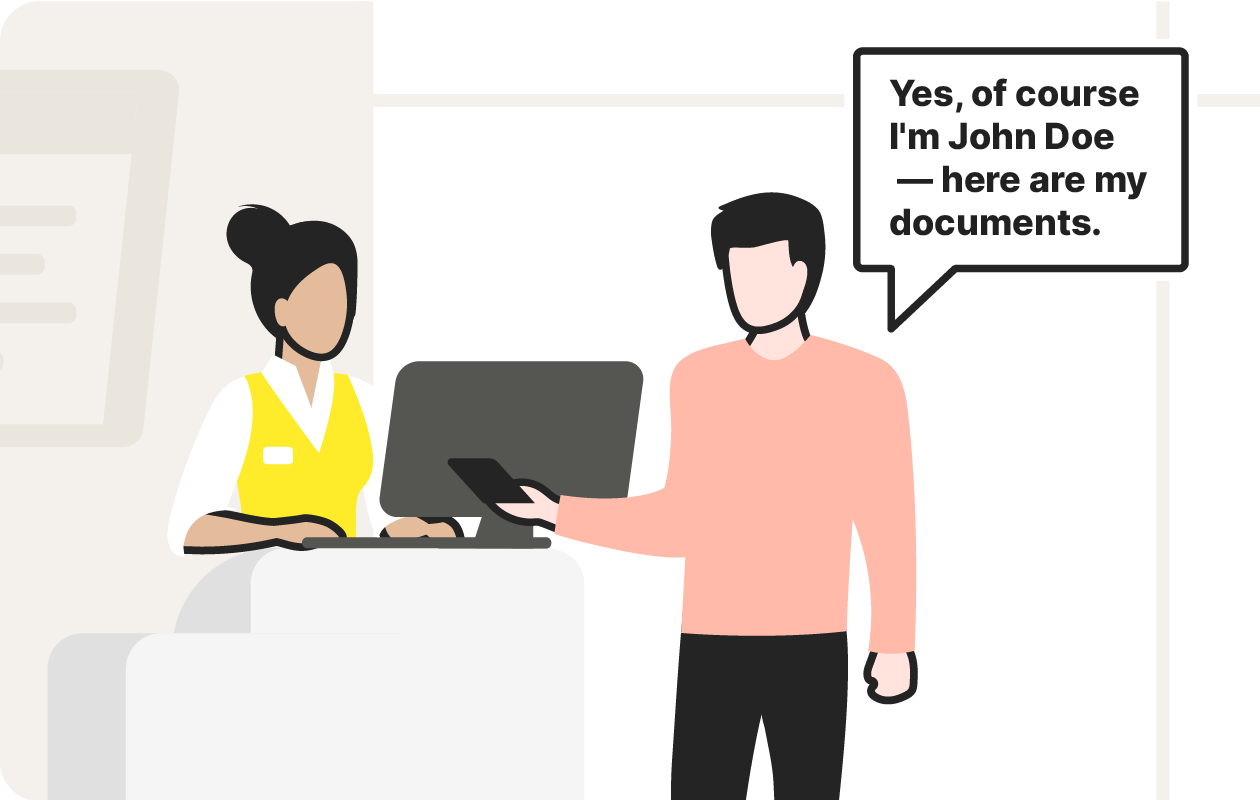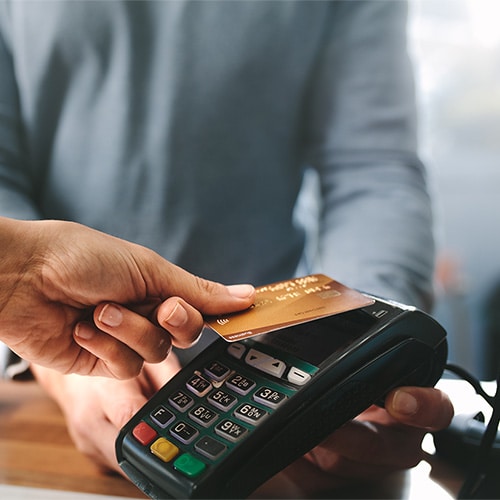Links to report welfare fraud by state
Welfare systems help low-income, disabled, and elderly people access the support they need, from proper housing to food subsidies. Welfare fraud is the term used to describe the illegal abuse of these government-provided programs.
In this article, we’ll explain what constitutes welfare fraud and provide some simple steps you can take to help protect yourself from falling victim to it. We’ll also cover how to report a welfare fraud case so you can act quickly if your personal information is used by a fraudster.
What is welfare fraud?
Welfare fraud is the act of intentionally cheating the welfare system to qualify for government programs you’re not eligible for. It occurs when someone deliberately uses inaccurate, incomplete, or stolen information to receive cash, food, housing, or healthcare benefits that they otherwise wouldn’t be entitled to receive.
Some welfare fraud cases involve fraudsters simply misrepresenting their personal details or current situation to falsely qualify as welfare recipients. However, criminals can also commit identity theft with the aim of carrying out welfare fraud. In these cases, they steal personal identification details from a living or deceased person who qualifies for government assistance and use them to illegally apply for benefits.


Examples of welfare abuse
Public assistance fraud schemes can target practically any government benefit program. Fraudsters use diverse strategies to illegally access benefits, with common types of welfare fraud including:
- Underreporting income: Lying about primary income or omitting additional sources of income like a second job or cash payments to qualify for means-tested benefits like Medicaid.
- Hiding personal assets: Neglecting to report additional bank accounts, properties, or other financial assets when applying for welfare programs that assess wealth or capital.
- SNAP fraud/trafficking: Selling electronic benefits transfer (EBT) cards acquired through the Supplemental Nutrition Assistance Program (SNAP) for cash or trading them for other goods.
- Claiming to be a single parent: Lying about being a single parent to receive additional child support benefits or tax relief, despite both parents living in the home.
- Claiming fictitious children: Submitting a claim for ineligible or nonexistent children to receive additional benefits, like an increased Child Tax Credit allowance.
- Using a false ID: Using falsified or stolen Social Security numbers, medical information, or other sensitive personal identification details to fraudulently claim other people’s benefits.
How is welfare fraud detected?
Welfare fraud is detected by dedicated fraud investigation units who review applications for public assistance and investigate potentially fraudulent activity. Alongside looking into applications proactively, they also rely on privately submitted reports of suspected welfare fraud.
The investigation process involves manual or automated checks of welfare applications, with investigators looking out for suspicious anomalies, false information, or duplicated claims. Welfare fraud investigators can also make visits to supposed applicants to verify their eligibility.
Despite these checks, active welfare fraud schemes can still go undetected. That’s why it’s so important to take steps to help protect against your identity being stolen in the first place.
How to protect yourself against welfare fraud
Safeguarding your personal information online and at home is one of the best ways to shield yourself from becoming a victim of welfare fraud. This is especially the case if you’re eligible for government benefits, which can make you a valuable target for identity theft.
However, criminals can also apply for benefits using the names and personal information of deceased people, so there are additional precautions to take. Here are some ways to help protect yourself and your family:
- Beware of welfare scam calls: Scam artists may call you pretending to offer government benefits you supposedly qualify for just to gather your personal information. They can then use your details to claim the benefits for themselves.
- Secure your mailbox: Whether you receive public assistance or not, make sure your mail is delivered to a secure mailbox. Thieves sometimes steal government letters and other mail to commit identity theft.
- Report the death of a loved one: The Social Security Administration should be notified when a family member dies. This prevents identity thieves from applying for or continuing to claim a family member’s benefits after their passing.
- Report a missing EBT card: If you receive welfare benefits and your EBT card is lost or stolen, report it to your local welfare office. If funds are missing from your card, file a police report.
- Pay attention to data breaches: Data breaches are a common way for criminals to gain access to personal data. If you discover your information has been compromised, there are steps you can take after a data breach to protect yourself.
- Safeguard your personal information: Criminals getting access to your personal information can expose you to welfare fraud, so only share it with trusted people or organizations when absolutely necessary. And for enhanced protection, subscribe to LifeLock Advanced to help monitor your personal information across the web and get alerts when it’s used in potentially fraudulent credit and financial applications.
How to report welfare fraud
Each state has its own investigation department that deals with welfare fraud cases. If you think your identity is being used to get benefits fraudulently or you’re aware of somebody using false information in their claims, you can file a report with your state’s fraud investigation department.
Depending on what state you live in, you can report welfare fraud via email, phone, or online. To help you take the next step, we’ve compiled a list of each state’s relevant webpage where you can find up-to-date online forms, phone numbers, and email addresses to submit a report.
*Applies to Medicaid fraud only
If you’re still unsure which agency to contact, you can submit complaints regarding welfare fraud directly to the Office of Inspector General within the U.S. Department of Health and Human Services.
Get ahead of welfare fraud
LifeLock Advanced monitors hundreds of millions of data points a second to help you detect potential identity theft. It can help you stay a step ahead of criminals and protect against identity theft which may lead to welfare fraud, sending automatic alerts for data breaches, crimes committed in your name, and potentially fraudulent use of your personal details in credit applications. Subscribe to LifeLock today and start protecting your personal information.
FAQs
What is considered welfare fraud?
Any intentionally fraudulent abuse of government benefit programs is considered welfare fraud. Common schemes include falsifying eligibility information, failing to notify the program about subsequent changes in eligibility, and committing identity theft with the intention to use stolen details in welfare fraud.
What should I do if someone steals my identity to collect welfare?
If you suspect you are the victim of identity theft, you should immediately file a report with the FTC, the police, and your bank. You can then notify the credit bureaus, who can freeze your credit and place a fraud alert. If you believe your identity has been stolen for the purpose of welfare fraud, you can also file a report with your state’s fraud investigation unit.
Are all anonymous welfare fraud reports investigated?
Not all welfare fraud reports are actively investigated. Fraud investigation units receive a large volume of reports, many of which aren’t legitimate. Investigators focus resources on credible reports backed up by relevant evidence. It might also take some time before a report is investigated. However, you should still submit a report if you’re aware of welfare fraud being committed.
What happens during a welfare fraud investigation?
When someone is suspected of committing welfare fraud, a fraud investigation unit opens up an investigation. This might involve an unannounced house visit to verify the applicant’s eligibility or an audit of the financial information provided during the welfare application.
What are the consequences of welfare fraud?
Welfare fraud in any form is a crime, and criminal charges vary by state. Potential welfare fraud charges include theft, perjury, or forgery, and their severity can range from a misdemeanor to a felony based on the scale of the fraud. Convicted fraudsters may be forced to repay any stolen benefits, permanently disqualified from benefit programs, or even imprisoned.
Editor’s note: Our articles provide educational information. LifeLock offerings may not cover or protect against every type of crime, fraud, or threat we write about.
Start your protection,
enroll in minutes.
LifeLock is part of Gen – a global company with a family of trusted brands.
Copyright © 2026 Gen Digital Inc. All rights reserved. Gen trademarks or registered trademarks are property of Gen Digital Inc. or its affiliates. Firefox is a trademark of Mozilla Foundation. Android, Google Chrome, Google Play and the Google Play logo are trademarks of Google, LLC. Mac, iPhone, iPad, Apple and the Apple logo are trademarks of Apple Inc., registered in the U.S. and other countries. App Store is a service mark of Apple Inc. Alexa and all related logos are trademarks of Amazon.com, Inc. or its affiliates. Microsoft and the Window logo are trademarks of Microsoft Corporation in the U.S. and other countries. The Android robot is reproduced or modified from work created and shared by Google and used according to terms described in the Creative Commons 3.0 Attribution License. Other names may be trademarks of their respective owners.







